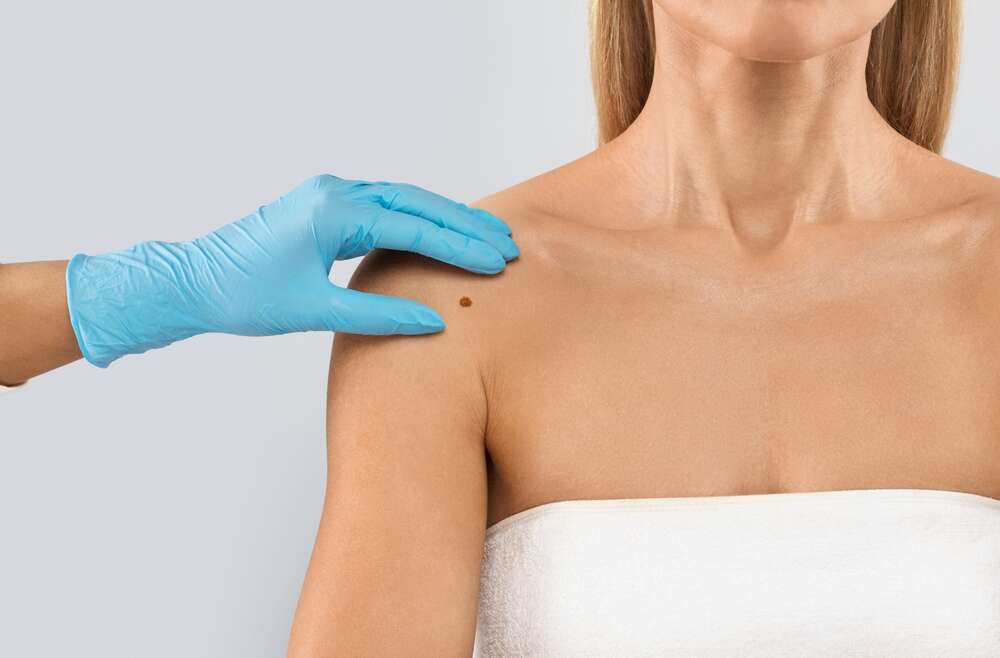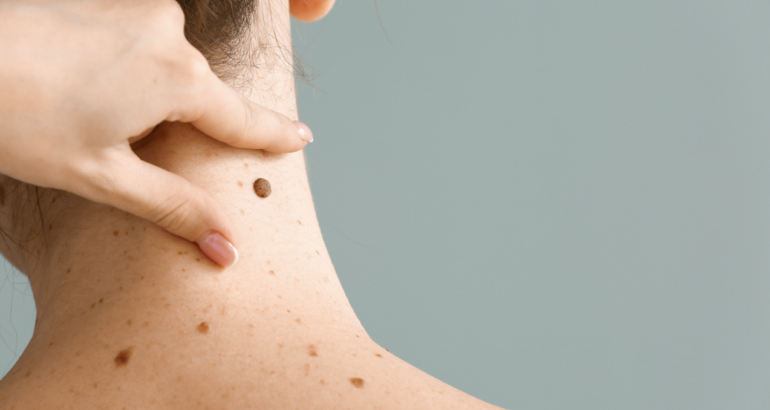Melanoma is a type of skin cancer, one that can be deadly if not detected early and treated.
It’s critical to see a skin cancer doctor in Marietta regularly to make sure it doesn’t go undetected. Here’s what else dermatologists want you to know about melanoma.
Look for the ABCDEs of Melanoma When You See a Spot on Your Skin
The ABCDEs of melanoma are a simple way to remember the signs of this deadly skin cancer.
- A stands for asymmetry, meaning that one half of the mole or spot is different from the other half
- B stands for border irregularity, meaning that the edges of the mole aren’t smooth and may be jagged or blurred
- C stands for color variation, meaning that the mole or spot has different shades of brown, black, or even pink, red, or white
- D stands for diameter, meaning that the mole or spot is larger than a pencil eraser
- E stands for evolving, meaning that the spot is changing, which could be in shape, size, and / or color
Prevention Is Key
Preventing melanoma is much easier than treating it.
The most important thing you can do is to protect your skin from the sun. If you are going to be outdoors, even on cloudy days, you should wear protective clothing and a hat.
Additionally, use quality sunscreen with an SPF of at least 30. Do not use tanning beds, which can increase your risk of developing melanoma by up to 75%. It’s also important to stay in the shade during the hottest part of the day, which is usually between 3 pm and 6 pm.
Annual Skin Checks Are Essential
Even if you take all the necessary precautions to protect your skin from the sun, you should still have an annual skin check with an experienced skin care specialist.
During this examination, your doctor will look at your skin from head to toe for suspicious spots or moles. They may recommend a biopsy for any suspicious lesions to determine whether it is cancerous.
Don’t Delay a Visit if You See a Suspicious Spot
The earlier melanoma is diagnosed, the easier it is to treat. You also have a better chance of a full recovery. If you see anything on your skin resembling the ABCDEs above, schedule a visit with your doctor right away.
The Importance of Seeing an Experienced Skin Care Specialist Can’t Be Understated
A skin cancer doctor in Marietta, typically a dermatologist, has the training and expertise to detect skin cancer early, which is when it is most treatable. In addition, an experienced skin care specialist can provide you with advice on how to protect your skin from the sun, as well as perform any necessary biopsies or other procedures.
During Your Visit With a Skin Cancer Doctor in Marietta, Be Sure to Ask Questions
If you suspect you have skin cancer, make a list of questions to ask during your appointment. You can use this list to help you get started.
- How can I protect my skin from progression of skin cancer?
- What are the symptoms I should look for?
- What are the top skin cancer treatment options, and which one is right for me?
- How long does it typically take to recover from skin cancer treatment?
- Can skin cancer recur after treatment? If so, what steps can I take to prevent it from recurring?
- Are there any side effects from skin cancer treatment that I should be aware of?
- How often do I need follow-up appointments after skin cancer treatment?
- How can I support my skin health and prevent skin cancer in the future?
For Compassionate Care, Turn to the Skin Cancer Expert Here at Acworth Dermatology & Skin Cancer Center
Don’t delay a visit to an experienced skin care specialist if you notice a suspicious spot on your skin or you haven’t had a skin check to detect any potential skin cancers in over a year!
Book your appointment today by calling us at 678-505-8030! Our specialist Dr. Chappell has years of experience treating melanoma and other skin cancers with Mohs surgery and other methods.



